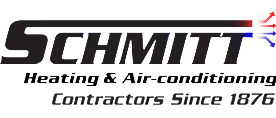Is Your HVAC System Protected From Power Surges?
Your HVAC system keeps the climate in your home comfortably cool in the summer and warm in the winter. In order to keep it in good working order and also to prevent damage to other utility systems in your home, you must provide protection from damage from electrical power surges.
Protect Your Home Utilities
External power surges that come into your home’s hard-wired equipment such as furnaces, air conditioners, water heaters and boilers are caused by forces from outside your house. External power surges happen when a utility company works on the power lines in your area, when a power line is taken down due to an accident or when lightning strikes a transformer. These actions can send a stronger surge of electricity through the line directly into your home.
Electronic equipment you have plugged into your electrical outlets is suffers from these external power surges. Electronics are subject to internal power surges as well. These occur when your powerful appliances (such as the air conditioner) cycle on and draw a lot of power then cut off and release it back into the house flow, creating a surge. Over time this damages the equipment by gradually eroding components.
Home Power Surge Protection
To adequately protect your home, utilities and electronics, you need two forms of surge protection. The first is whole-house surge protection. This is installed at the point of entry of the power supply for your home. You may have one for the entire house or one for each major system. The second is the point-of-use surge protection. This is installed by either plugging electronic devices into power surge strips or by having power surge protectors built into your wall outlets. Although there is no way to make your home completely free of power surges, these protections will greatly diminish any harm a power surge might cause.
HVAC Maintenance
You probably have power strip surge protectors but might not know if you have protection at the point of entry for your home’s utilities. To be safe, call your Home HVAC Service Technicians and make an appointment soon to have them make sure your home is protected against power surges.


